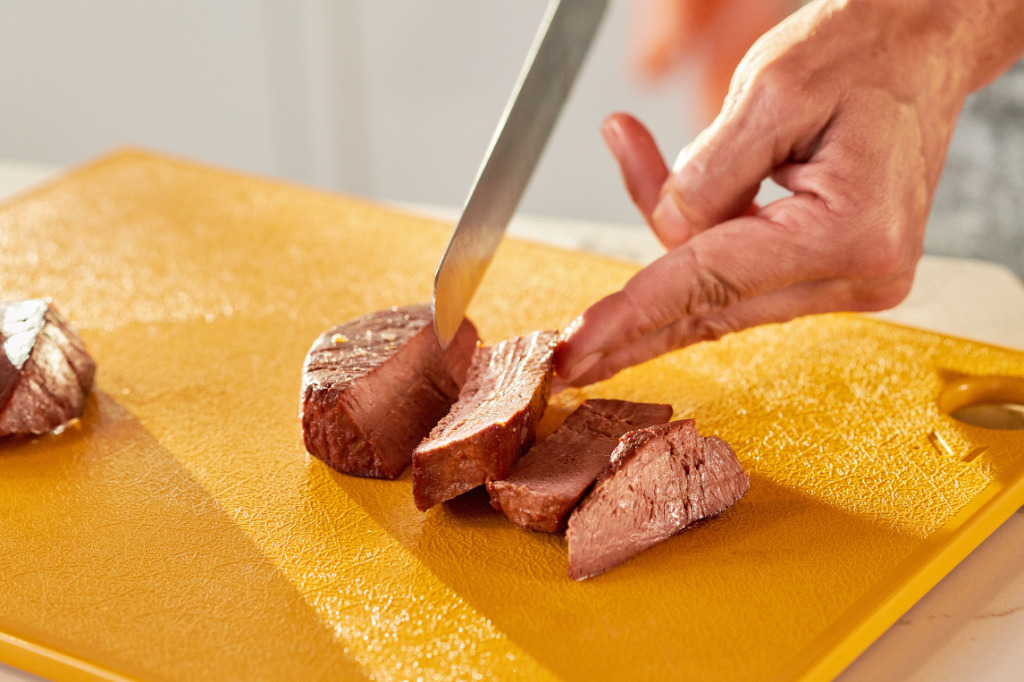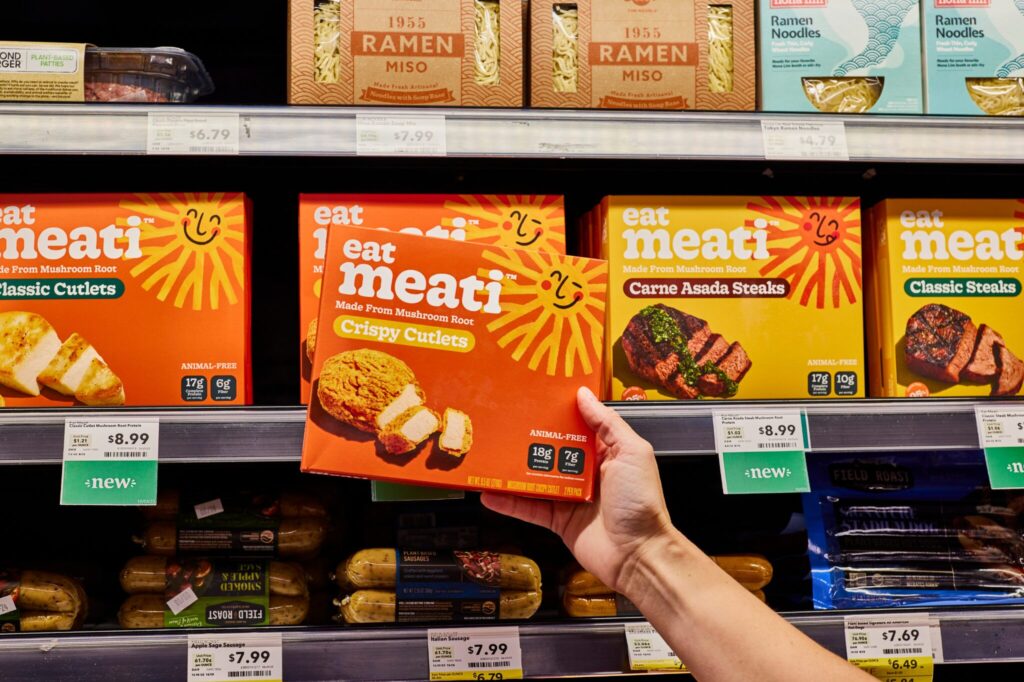Meati Faces Another False Advertising Lawsuit Over ‘Mushroom Root’ Claim
4 Mins Read
US startup Meati Foods is facing a second lawsuit in less than a year for marketing its mycelium meat products as made from ‘mushroom root’.
Just a week after it settled a false advertising lawsuit in California, mycelium meat producer Meati was hit with another legal complaint over its ‘mushroom root’ claim in New York.
The class-action complaint was filed on December 23 in Kings County Superior Court by local resident Mario Burns, and accuses Meati of misleading consumers over the true contents of its vegan steaks and chicken cutlets.
The plaintiff argues that since Meati uses Neurospora crassa – a red mould that commonly grows on bread – as its base ingredient, advertising its products as ‘Made from Mushroom Root’ is a case of adulteration and misbranding.
“As the typical consumer is not a botanist, they should be forgiven for not knowing the differences between fungi and plants, especially in the 13 seconds taken to choose what to buy,” the complaint reads. “The mycelium used in the products, from Neurosporo crassa, cannot be used to create or grow mushrooms, and is not a mushroom.”
Consumers expect mushroom roots ‘to be from mushrooms’

Mycelium is a “bundle of fungi filaments” that underpins mushrooms, according to a blog post on Meati’s website. “Not all mycelia are the same. There are countless species and strains within the fungi kingdom. Some produce fruiting bodies, which we all know as mushrooms. Some produce mycotoxins to help them counter threats they might find in their environment. Meati’s mycelium does not make either,” the company says.
The complaint notes that Meati described ‘mushroom root’ as ‘mycelium’ in parentheses on the back of the packaging, which contained a label that read ‘95% Mushroom Root Protein’.
It cites a profile by Canary Media from June 2024, which explained Meati’s process as putting “a teaspoon of Neurospora crassa spores into a brewery-like tank and adds sugar for the fungi to eat”, to suggest that there may not be as much mycelium in Meati’s products as the company claims.
But the document doesn’t mention the rest of the article’s sentence, which reads: “The ensuing fermentation creates ’the protein equivalent of hundreds of bison’ in four to five days.” Essentially, the process of fermentation allows the microbes to reproduce and multiply rapidly, creating a fungal biomass with high levels of protein.
“Unlike traditional mushrooms, mycelium fibres are ‘harvested’ from the vats, they are assembled in an industrial factory, and pressed into the shapes of cutlets and steaks,” the complaint states, adding that when consumers see a front label that promotes a product as based on mushroom root, “they expect it to be from mushrooms, not a strain of mycelium grown in an industrial factory”.
“Mushrooms lack roots like plants,” it adds, describing mycelium as “the thread-like body of a fungus that grows underground”. It further alleges that consumers were “not informed” that the consumption of Neurosporo crassa “can cause serious allergic reactions, and other harmful effects”.
Meati accused of setting premium prices through false marketing claims

Burns says he purchased Meati products between November 2021-24 at stores in New York, and is looking to make it a class-action case, which would allow other state residents to join the complaint.
The plaintiff notes that the mycelium used to create Meati’s products has “little to no connection to mushrooms”, and points to the FDA’s recognition of the difference between the two ingredients. “Any food in which mushroom mycelium is used should be labelled to state that fact. Labelling should not suggest or imply that the food contains mushrooms,” the agency stated in 2018.
The complaint claims that the products are sold at a premium price (around $8.99 for 8.8oz) “as a result of the false and misleading representations and omissions”. The plaintiff suggests that he would not have paid such a high price had he known that the products were made from mycelium.
Meati, for its part, has removed most mentions of ‘mushroom root’ from its website, and has spoken of its shift towards marketing its products as mycelium “out of a spirit of simplicity and transparency”. Its packaging, however, still features ‘mushroom root’.
The company settled a lawsuit in California over the same issue merely a week before this new complaint was filed. Months earlier, it ended a long-running IP dispute with fellow mycelium meat maker The Better Meat Co.
It was founded as Emergy in 2015 by Tyler Huggins and Justin Whiteley, and is one of the most well-funded meat alternative companies, having raised $365M to date, including a $100M Series C1 round in 2024. Its chicken cutlets and steaks are available in thousands of retail locations across the US.



